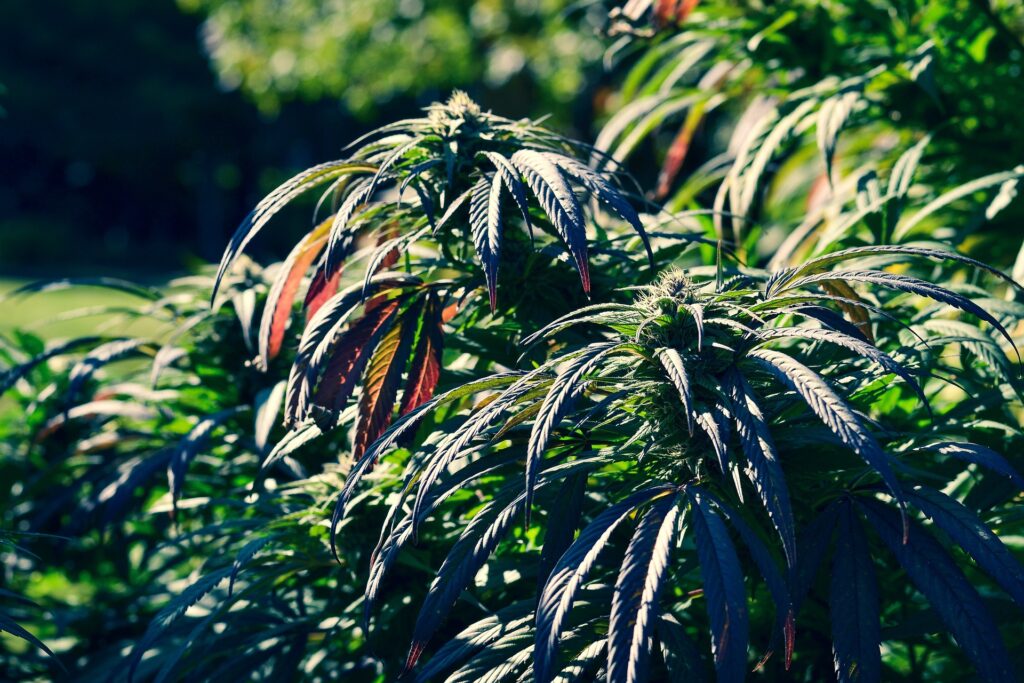Cannabis and Dreaming: Does Weed Affect Sleeping?
The subject of cannabis and dreaming is a very interesting one. Cannabis has long intrigued researchers and enthusiasts alike due to its potential effects on our dreams and sleep patterns. In this exploration, we will delve into the intricate relationship between cannabis and dreaming, shedding light on how this plant influences our nocturnal experiences.
Before we can explore the connection between cannabis and dreaming, it is crucial to understand the fundamentals of sleep and dreams. Sleep is a complex physiological process that encompasses several stages, including rapid eye movement (REM) and non-REM phases. Dreams predominantly occur during the REM phase, characterized by heightened brain activity, rapid eye movements, and vivid dream experiences. Non-REM sleep, in contrast, involves slower brain activity and generally less vivid dreams.
How Does Cannabis Impact Dreaming and Sleep?
Cannabis and dreaming probably need a bit more research to be honest. Marijuana contains active compounds known as cannabinoids, which interact with our endocannabinoid system. This system plays a significant role in regulating various bodily functions, including sleep.
Many people do not have dreams if they are constant cannabis smokers. It’s not they don’t have dreams. It’s just you end up in such a deep sleep state that you do not wake up in the middle of a dream and remember it. Some cannabis smokers have not seemingly had dreams for years, but that’s not entirely true.
The two most well-known cannabinoids in cannabis are delta-9-tetrahydrocannabinol (THC) and cannabidiol (CBD). THC is responsible for the psychoactive effects of cannabis, while CBD is non-psychoactive and has potential therapeutic benefits.
REM Sleep Suppression:
One of the most common effects of cannabis use, particularly THC, is the suppression of REM sleep. Studies have shown that THC reduces the amount of time spent in the REM phase, where most vivid dreams occur. Consequently, regular cannabis users often report fewer dreams, and when they do dream, these dreams tend to be less intense and memorable.
This REM suppression can have both positive and negative implications. On one hand, it may benefit individuals struggling with nightmares or post-traumatic stress disorder (PTSD) by reducing the frequency and intensity of distressing dreams. On the other hand, it can disrupt the natural sleep cycle, potentially leading to sleep disturbances and difficulties with memory consolidation and emotional processing. Cannabis and dreaming are intrinsically linked in a number of ways.
Disrupted Sleep Patterns:
Cannabis can alter the normal sleep architecture, affecting the overall structure and quality of sleep. While some users may find that cannabis helps them fall asleep more easily, it can lead to fragmented sleep and reduced sleep efficiency. Frequent cannabis use may also result in tolerance, where higher doses are required to achieve the same sleep-inducing effects, potentially exacerbating sleep disturbances. So in effect, cannabis and dreaming are linked.
- Individual Variability: It’s important to acknowledge that the impact of cannabis on dreaming and sleep varies from person to person. Factors such as the strain of cannabis, the method of consumption, dosage, and individual differences in metabolism all contribute to how cannabis affects sleep. Some users may experience pronounced changes in their dream patterns, while others may hardly notice any difference at all.
- CBD’s Influence: While THC primarily suppresses REM sleep and affects dreams, CBD appears to have a different relationship with sleep. Some studies suggest that CBD may have a more positive influence on sleep by promoting relaxation and reducing anxiety. It interacts with the endocannabinoid system differently than THC, making it a potential option for those seeking improved sleep without dream suppression.
- Tolerance and Withdrawal: Long-term cannabis use can lead to the development of tolerance, where the body becomes less responsive to the effects of THC. This can result in users needing higher doses to achieve the same sleep benefits, further complicating the relationship between cannabis and sleep. Additionally, abrupt cessation of cannabis use can lead to withdrawal symptoms, including vivid and disturbing dreams, commonly referred to as “REM rebound.”

Historical and Cultural Perspectives
To gain a deeper understanding of the relationship between cannabis and dreaming, it’s valuable to explore historical and cultural perspectives on the use of this plant. Cannabis has a long history of use in various cultures around the world, often for spiritual, medicinal, or recreational purposes.
In ancient civilizations like the Chinese, Indian, and Egyptian, cannabis was used for medicinal and religious purposes, with some references suggesting that it was believed to enhance dream experiences or facilitate communication with the divine. In Hinduism, for instance, the god Shiva is often associated with cannabis, and it has been used as an offering in religious rituals.
In more recent history, cannabis became popular among counterculture movements in the 1960s and 1970s, with proponents of its use often emphasizing its potential to expand consciousness and promote creative thinking, including in the realm of dreams. The association between cannabis and dreams in this context was often seen as a way to access deeper levels of the mind and explore altered states of consciousness.
Cannabis and Dreaming: Final Thoughts
The relationship between cannabis and dreaming is a complex and multifaceted one. While THC, the psychoactive compound in cannabis, is known to suppress REM sleep and affect dream patterns, individual responses vary widely. Some people may find that cannabis helps them relax and fall asleep more easily, while others experience disruptions in their sleep cycle and dream patterns.
CBD, another major cannabinoid in cannabis, may offer a more promising avenue for those seeking to improve sleep without compromising dream quality. Its potential to reduce anxiety and promote relaxation could make it a viable option for managing sleep-related issues.
Ultimately, the impact of cannabis on dreaming and sleep is highly subjective and dependent on various factors.
As our understanding of cannabis and its effects on sleep continues to evolve, it’s essential for individuals to make informed choices regarding cannabis use, especially if they are using it as a sleep aid. Consulting with a healthcare professional and considering alternative sleep therapies may be advisable for those experiencing sleep disturbances or seeking to enhance their dream experiences.


